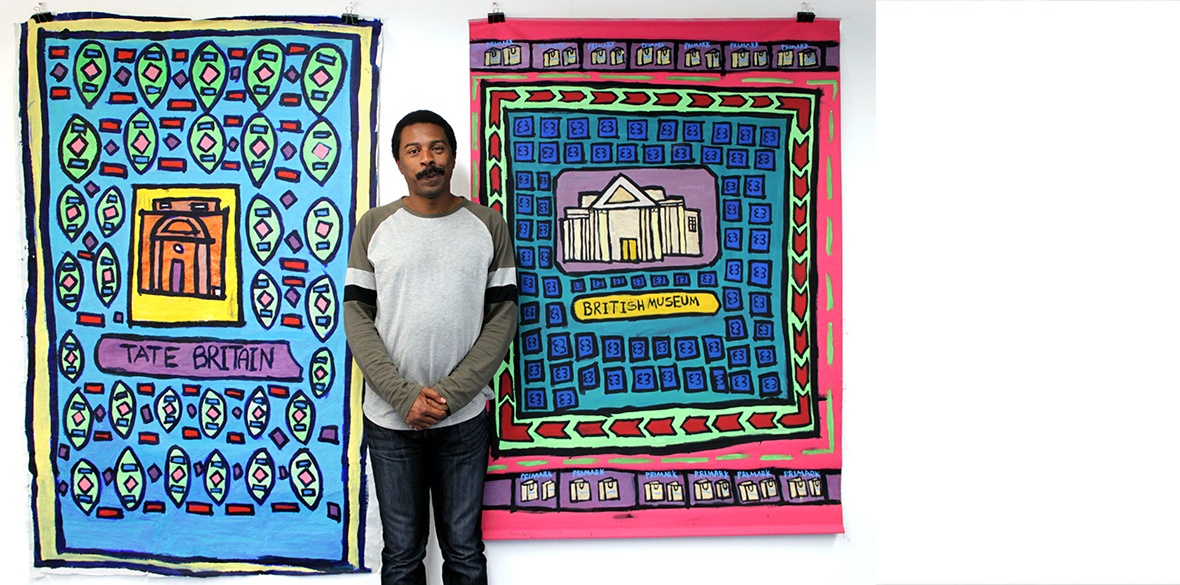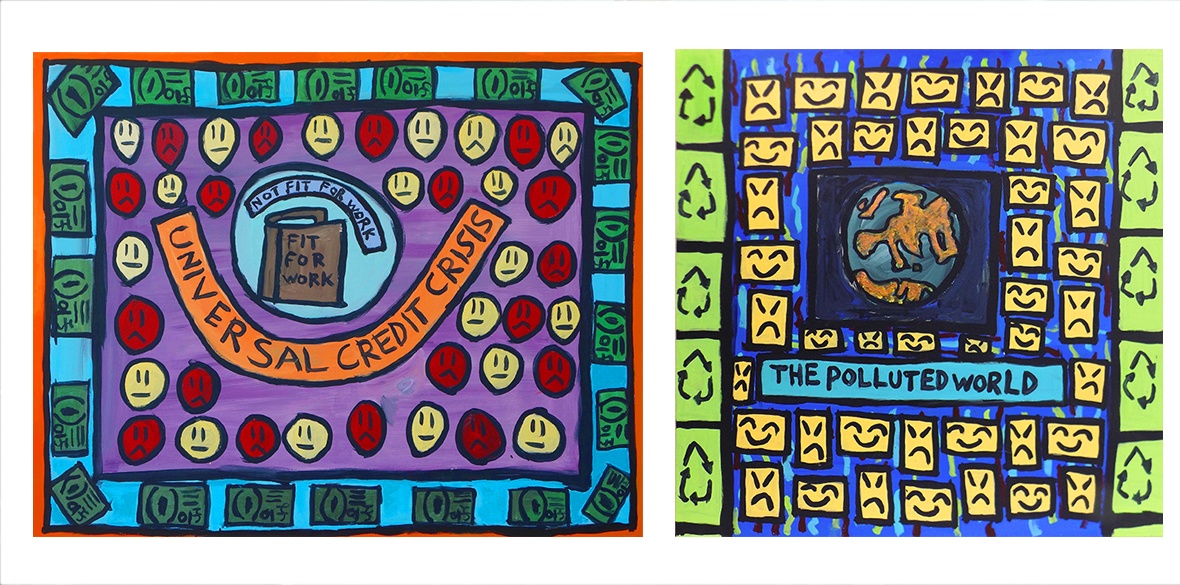This is the last article you can read this month
You can read more article this month
You can read more articles this month
Sorry your limit is up for this month
Reset on:
Please help support the Morning Star by subscribing here
THOMPSON HALL’S paintings are a head-turner, graphically succinct, of strong composition and illuminated by vivid colours. They are powerful, symbolic tableaux that shed light on issues of urgent concern including social change and marginalisation.
Reminiscent, in their intention, of Mayakovsky’s Rosta posters, or the interventionist spirit of Keith Haring’s it is the lucidity of their proto-political messaging that is so arresting and intriguing.
When asked where he draws his inspiration from, his is a matter of fact list: “Watching the news, reading newspapers, talking to people and find out what they are interested in
going to galleries and museums, learning about the history of people and places.”
Hall’s paintings resemble board games where segregation and exclusion surround centrally placed British institutions. Is he expressing a discontent experienced personally, among relatives, friends, etc?
“I feel comfortable going to galleries and museums because I have been doing it for a long time,” he says. ”But I am aware of the history of many of the big museums, like the Tate which was started by Henry Tate who was a sugar merchant, a trade that was built on the foundation of slavery.
“Similarly the British Museum, which in the past acquired historical objects from other countries that are now wanting them returned, like the issues surrounding the Benin Bronzes. I did a painting about that and I feel angry that these institutions don’t always explain how they got these objects. That is why people were not aware of the background to this.”
His paintings give an appearance of quick annotations, comments articulated with rapid brush strokes that would suggest he works fast. “I tend to map out what I am going to do and then add the details, so yes initially I work fast but I also go back and look at the painting once I have mapped everything out and sometimes I will paint over and redo things.
“When I use colour, the tonal light reflects tone or mood within the painting for people to look at,” he adds.
He paints instinctively and spontaneously using primary colours to express his emotions and convey how he feels about things. He doesn’t over think just goes with how he feels in the moment.
When asked what he expects people to take home with them from his paintings, Hall hesitates: “I suppose it’s to spark a debate among themselves on the subjects I have chosen for the paintings, I want them to think about things in my paintings that they can relate to.”
For such dialogue or reflection to take place you need enough mainstream art spaces prepared to show work by neurodiverse artists. But Hall is sceptical: “I don’t think there are enough galleries prepared show our work ... gallery owners dismiss such work as not of good enough standard even before they look at it to find out that it is.”
Such risk aversion is encountered by artists who haven’t come through art college, he believes and is well aware that his work is as good as any he has seen in many a gallery.
Hall’s development has been given a boost by his three month-long residency at Autograph, in east London’s Hackney, for which he was mentored by its award-winning director Mark Sealy.
The space at his disposal means he can use it whenever he wants with ample time to experiment, try new things and especially: “To think about what I want to do next.”
He is also keen to use the time to visit galleries, look at other artists’ work. His anticipation at the opportunity to talk to other artists about their work and thoughts excites him and offers a promise he is looking forward to.
Already at Autograph he has found a stimulating environment created by the staff, curators and visiting artists. This feeling of inclusion, of being part of the contemporary art sector excites and inspires him.
Finally when asked about his hopes for the future he exclaims: “A SOLO EXHIBITION!” His work certainly deserves no less.
Thompson Hall: Inequality, Marginalisation and Social Change organised by ActionSpace and Autograph is a free outdoor display on the walls o Autograph, Rivington Place London EC2A 3BA, from late May to October 2022.
For more information visit https://autograph.org.uk












